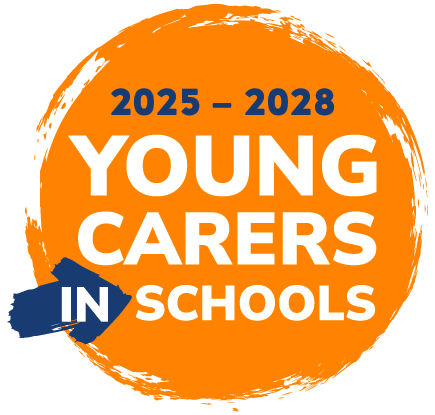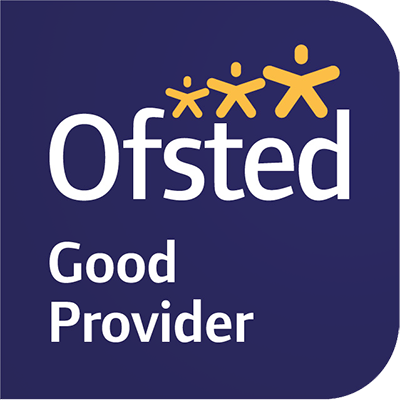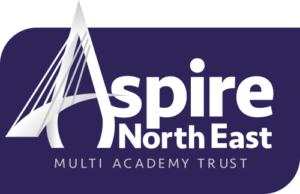Physical Education Curriculum Overview
Knowledge Organisers
- To engage in competitive sports and activities
- To gain an experience as a participant, coach and umpire.
- To analyse their performances compared to previous ones and demonstrate improvement to achieve their personal best
- To be physically active for sustained periods of time
- Lead healthy, active lives
- To take part in competitive sports and activities outside school through community links or sports clubs
- Use physical activity as a way to help to combat mental health, releasing emotions, feeling good.
- Pupils are given opportunities to practise, refine and revisit content.
- Physical health and wellbeing and providing health related knowledge and heath benefits of a active lifestyle.
- Psychological benefits of being physically active and the positive affect Physical Education can have on mental health and cognitive abilities.
- Social and emotional benefits by encouraging team work, communication, leadership skills and improving self confidence.
- Improve cognition and academic performance, exercise can help improve concentration and cognitive development including memory and focus.
- Helping to improve mood, anxiety and lowering stress levels, due to the release of endorphins during physical activity leading to a boost in mood and an outlet for anxiety and stress.
- Resilience (Aiming High Staying Positive Learning from Mistakes)
- Collaboration (Teamwork Leadership Communication)
- Creativity (Originality, Problem Solving, Independent Study)
Key Stage 3 Curriculum
Our Key Stage 3 Curriculum:
Pupils should build on and embed the physical development and skills learned in key stages 1 and 2, become more competent, confident and expert in their techniques, and apply them across different sports and physical activities. They should understand what makes a performance effective and how to apply these principles to their own and others’ work. They should develop the confidence and interest to get involved in exercise, sports and activities out of school and in later life and understand and apply the long-term health benefits of physical activity.
We know that students who read well achieve well. As such all subject areas are committed to providing regular opportunities to read extensively. We provide many opportunities for students to read, such as using resource/coaching cards for peer/self-assessment to help them access subject specific vocabulary and they have assessments based on their previous learning and using SMART Readers when appropriate. Students are also extensively subjected to oracy in this subject, this is in the form of mini plenaries throughout the lessons.
Download the full policy at the link above for a full break down of learning for each Term.
Key Stage 4 Curriculum
Our Key Stage 4 Curriculum:
At Key Stage 4 all option students in year 10 follow the NCFE Technical Award Level 1 and Level 2 in health and fitness which includes 3 lessons per week. All students have 1 hour of core PE per week.
In Year 11 all pupils have 2 lessons per week completing BTEC TECH 2022 in Sport.
Download the full policy at the link above for a full break down of learning for each Term.
Aim
Here at Sandhill View Academy, we aim to securely equip all of our students for life beyond school as successful, confident, responsible and respectful citizens. We believe that education provides the key to social mobility and our curriculum is designed to build strong foundations in the knowledge, understanding and skills which lead to academic and personal success. We want our students to enjoy the challenges that learning offers. Our aims are underpinned by a culture of high aspirations. Through developing positive relationships, we work towards every individual having a strong belief in their own abilities so that they work hard, build resilience and achieve their very best.Intent
The curriculum includes formal teaching through subject areas, assemblies and extracurricular activities. We regularly review content to ensure we continue to meet our curriculum aims. The Physical Education curriculum is planned to enable all students to develop knowledge and skills in the following areas:
To develop competence to excel in a broad range of team and individual gamesPhysical Education and a well-rounded curriculum are important not just in school but embedding health related knowledge through school and beyond education to encourage students to continue a healthy lifestyle into their adult lives. There are many benefits to Physical Education and a healthy lifestyle which include:
Throughout our programmes of study, every attempt is made to make explicit links to careers and the world of work. In addition to subject specific links, we aim to explicitly reinforce the skills and aptitudes which support employers say are important in the workplace;
The British values of democracy, the rule of law, individual liberty, and mutual respect of those with different faiths and beliefs are taught explicitly and reinforced in the way in which the school operates.
Sequence and structure
Our curriculum is split into Key Stage 3 (years 7, 8 and 9) and Key Stage 4 (years 10 and 11). Our core PE lessons cover a 5 year curriculum with 2 lessons per week year 7-9 and 1 lesson per week in year 10 and year 11.
At KS4 we also offer NCFE Level 2 Technical Award in Health and Fitness as a option subject which consists of 3 lessons per week which are a mixture of theory and practical lessons. In Year 11 all pupils follow the BTEC Tech Award in Sport, this is completed in 2 lessons per week.
Skills Builder
We are also explicitly embedding transferable ‘Skills Builder’ skills such as problem solving, aiming high and teamwork to prepare our students for higher education and employability skills for the future. This year in PE we will focus onLEADERSHIP including self development, team development, strategic thinking and innovation. Through this we aim to create a climate of supporting, encouraging and developing others to achieve a shared goal. We also aim to develop CREATIVITY through generating new ideas which can be honed through the problem-solving process. The focus is on developing confidence in different situations. Furthermore, we want our students to AIM HIGH by setting goals, prioritising tasks and involving others. This focuses on being able to plan effectively whilst working with care and attention, taking pride in success and having a positive approach to new challenges.
How does our Curriculum cater for students with SEND?
Sandhill View is an inclusive academy where every child is valued and respected. We are committed to the inclusion, progress and independence of all our students, including those with SEN. We work to support our students to make progress in their learning, their emotional and social development and their independence. We actively work to support the learning and needs of all members of our community.
A child or young person has SEN if they have a learning difficulty or disability which calls for special educational provision to be made that is additional to or different from that made generally for other children or young people of the same age.
Teachers are responsible for the progress of ALL students in their class and high-quality teaching is carefully planned; this is the first step in supporting students who may have SEND. All students are challenged to do their very best and all students at the Academy are expected to make at least good progress.
Specific approaches which are used within the curriculum areas include:
- 1:1 support with practical tasks e.g. Leadership at KS4 using modified groups working with swimming teacher and primary schools
- ·Resources adapted to accommodate a range of SEND needs
- ·Seating plans to allow for peer/teacher support
- ·A range of learning roles used to embed understanding e.g. practical participant, coach, leader, official
- Differentiated and feedback tasks outlined clearly on the board or in teaching resources and linked to assessment criteria at KS4.
- Group work and discussion tasks to develop confidence in leadership and ownership of learning from KS3 onwards e.g. leading warm-ups, stretches.
- Work is always uploaded onto Teams in order for both students and parents to work outside of the lesson
- Extracurricular clubs take place at lunch time and intervention takes place within the moderation windows for BTEC students when necessary.
- Modelling is a non negotiable in practical lessons to aid understanding of tasks.
- Visual aids, differentiated for individual pupils where necessary
How does our curriculum cater for disadvantaged students and those from minority groups?
As a school serving an area with high levels of deprivation, we work tirelessly to raise the attainment for all students and to close any gaps that exist due to social contexts. The deliberate allocation of funding and resources has ensured that attainment gaps are closing in our drive to ensure that all pupils are equally successful when they leave the Academy. More specifically within the teaching of Physical Education we;
- Offer overseas visits to ski resorts across Europe with subsidy available for disadvantaged pupils
- Targeted support for under-performing students completed on a 6 weekly cycling following data capture and identified on TEF’s and CEF’s.
- Intervention available throughout the week to close the gap between non-disadvantaged and disadvantaged.
- Engagement through the use of practical learning at KS3 and KS4.
- Due to accessing funding for disadvantaged students we ensure all these students are equipped with a BTEC revision guide to promote resilience, pride and independence in their work.
- Our KS4 results have shown a limited gap in attainment for disadvantaged students in comparison to those that are not.
How do we make sure that our curriculum is implemented effectively?
The PE curriculum is designed to give students the opportunity to work as part of a team a key quality required in employment. All KS4 students gain a leadership experience which gives them opportunity to coach younger students/their peers in an activity specified in the BTEC scenario of which they are required to develop organisation, time management and carry out the role of an official. Further opportunities are available within the department such as enrichment and extra-curricular activities ran by the department and external agencies. We are also heavily involved in the Sunderland School league and provide many sporting opportunities as part of the Sainsbury’s School Games as well as a range of football teams across the years in the school and they are entered into the schools local league and play league games and cup games. We are also involved in the everyone active, which helps gain the involvedment of peoples who may not want to be involved competitively. This has ranged from disengaged girls, SEN students, disadvantaged students with the aim of ‘Active 60’ and to encourage students to be active for 60 minutes by joining in in a range of activities.
The Physical Education curriculum leader is responsible for designing the Physical Education Curriculum and monitoring, implementation, success and reflecting on it’s success and make relevant changes. The subject leader’s monitoring is validated by senior leaders.
Staff have regular access to professional development/training to ensure that curriculum requirements are met, this is both from external and in house training based on monitoring and evaluating activities and drawing on the strengths of staff.
Effective assessment informs staff about areas in which interventions are required. These interventions are delivered during curriculum time to enhance pupils’ capacity to access the full curriculum for example: swimming top up, intervention groups.
Curriculum resources are selected carefully and reviewed regularly and whole schools strategies implemented.
Assessments are designed thoughtfully to assess student progress and also to shape future learning. These have been adapted to mirror the exam at KS4, these are monitored and approved by senior leaders.
How do we make sure our curriculum is having the desired impact?
- Examination results analysis and evaluation, reported to the senior leaders and the local governing body to ensure challenge
- Termly assessments-analysis and the completion of TEF’s and CEF’s
- Lesson observations
- Learning walks
- Book scrutiny
- Regular feedback from Teaching Staff during department meetings
- Regular feedback from Middle Leaders during curriculum meetings
- External reviews and evaluations





